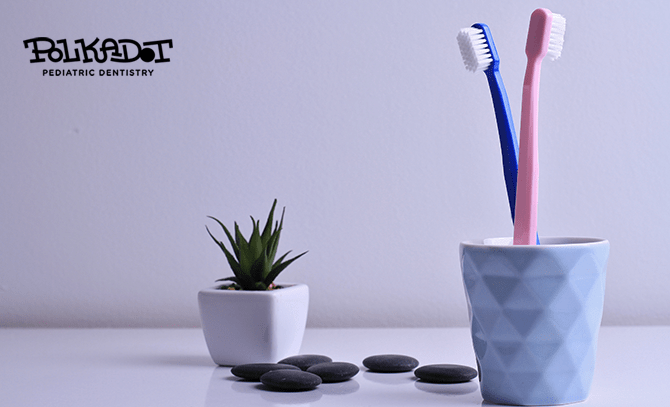Oral hygiene
Are You Storing Your Toothbrushes Properly?
Alpharetta, GA – Parents know that it is important to encourage children to brush their teeth twice a day. Proper brushing can keep a mouth clean and healthy. But parents also need to be paying close attention to how their family’s toothbrushes are stored.
“It’s properly not something that you typically spend much time thinking about,” says pediatric dentist Dr. Nanna Ariaban.
“But recent studies have shown that toothbrushes can harbor microorganisms that can cause oral infections.”
Your mouth is home to a host of microorganisms, and when you brush, these can be transferred to your toothbrush. Microorganisms found in the environment where you store your toothbrush can also be transferred to the brush. And this is why where and how you store your toothbrush is important.
-
- Air it out.
Putting your toothbrush in a closed container can allow the bacteria and microbes to grow faster. Dark, damp places are ideal for this, and putting a cover on your toothbrush after your brush means it won’t dry out quickly. A toothbrush holder on the counter or a medicine cabinet are ideal as there will be sufficient airflow to allow your toothbrush to dry out quicker.
-
- Think before you place.
If you leave your toothbrushes on your counter, be sure they are located away from both your toilet and sink. Every time you flush your toilet, germs can waft through the air, and those are not germs you’ll want landing on your toothbrush. Likewise, be sure toothbrushes stored on a counter are far enough away from the sink that they’ll avoid splashing from soap and dirty water.
-
- Never share toothbrushes.
Every member of your family should have his or her own toothbrush and sharing should be discouraged. Sharing can introduce bacteria and microorganisms into mouths, so don’t share and be sure wherever your brushes are stored, there is adequate room so the toothbrushes don’t touch.
-
- Change regularly.
Your toothbrush should be changed out approximately every three months. But you should also be cleaning it regularly to prevent the build-up of bacteria, dust and other things that can contaminate it. You can pop it in the dishwasher, or wipe it down with an antibacterial cleaner on a regular basis.
© 2019 Polkadot Pediatric Dentistry. Authorization to post is granted, with the stipulation that Polkadot Pediatric Dentistry, an Alpharetta dentist, is credited as sole source.


